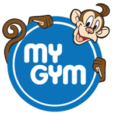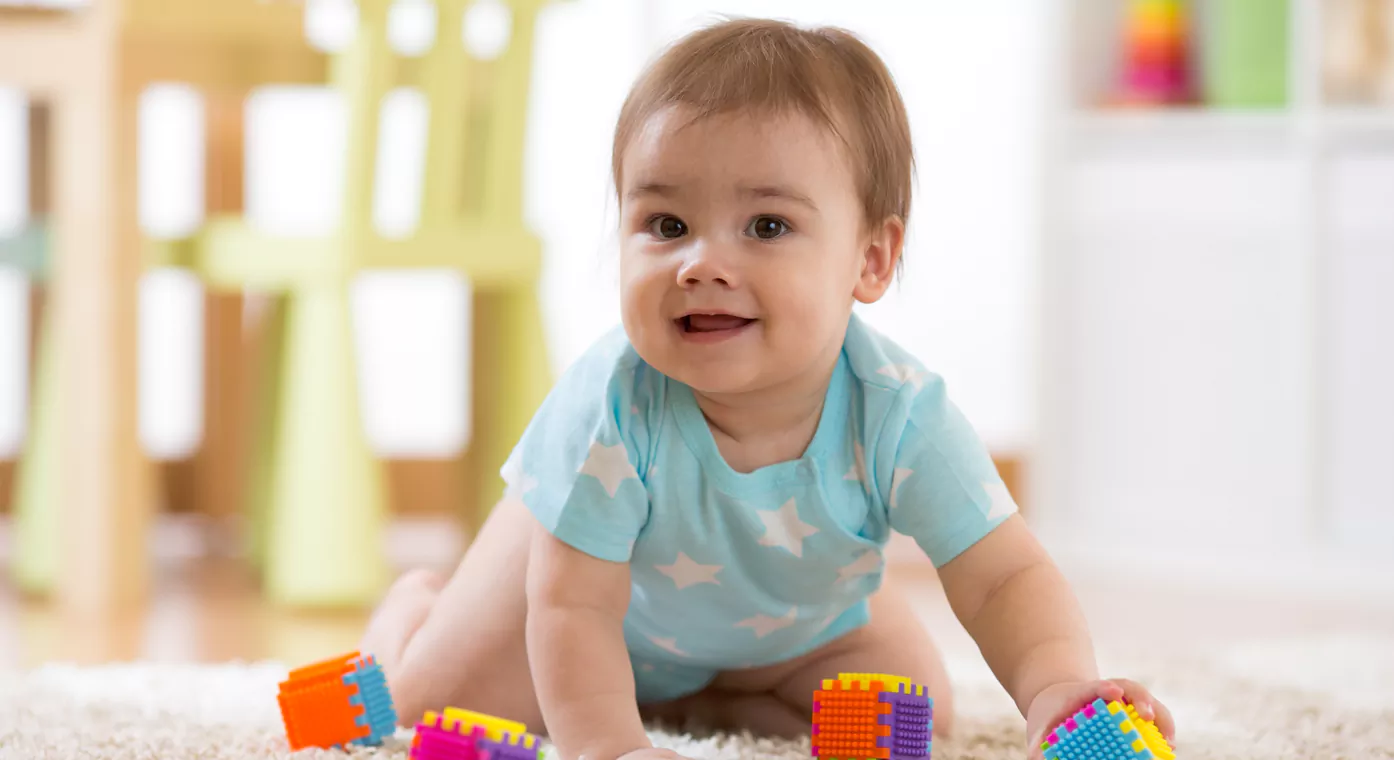Ways to Promote Cognitive Development in Toddlers
Our sense of individuality begins to form during infancy, a time that is rich with activity and experiences. Using actions, infants give structure, order, permanence, and predictability to their experiences and begin to paint their versions of reality. They are active, self-motivated learners.
As a matter of fact, what you witness in the crib is the greatest mind that has ever existed, the most powerful learning mechanism in the universe slowly taking shape. A mind learning to make sense of an experience. You will see an infant indulging in cognitive development activities and creating her own reality — bringing meaning to each event and each action. You will also see a personality emerging, If parents watch carefully, they will witness a mental state that is constantly changing, becoming more complex, yet maintaining continuity with its past at the same time. To watch infants engage in this process is to watch growth itself.
What are cognitive skills?
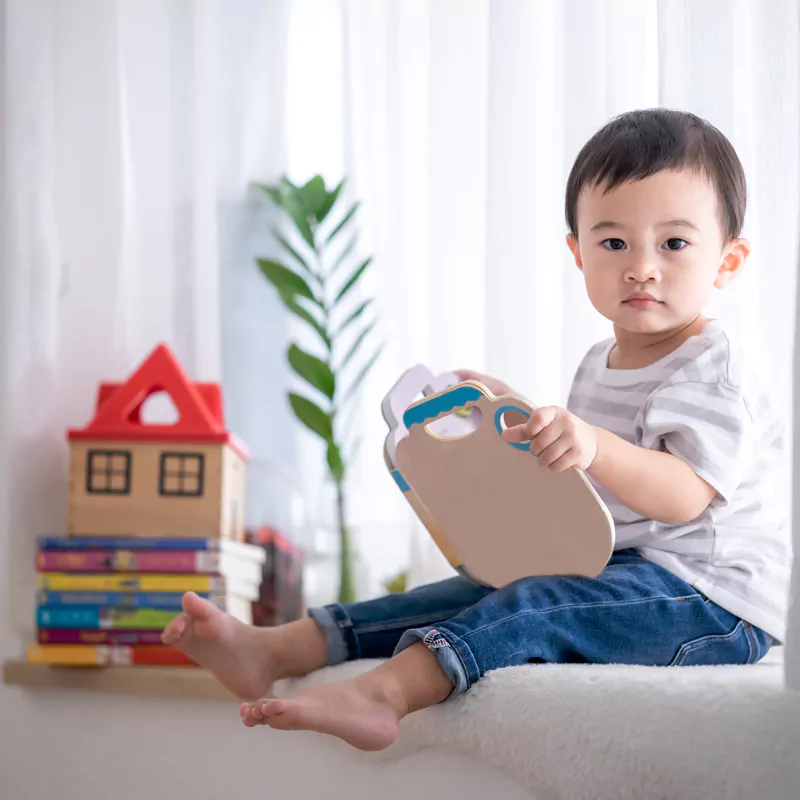
When parents think about cognitive development activities, they usually mean learning academic skills and building a knowledge base. This understanding limits them to know about colours, recognizing shapes, learning the alphabet and the “3Rs” – reading, writing and arithmetic.
But what cognitive development activities really means is a focus on the way changes occur within the brain and relate to how a toddler thinks and learns to grow. Toddlers and young children do not just know less than adults do, there are major differences in the very way they think about and understand their experiences.
Remember, cognitive skills are not the same as the subjects taught in a classroom at school. Academics comprise having knowledge about different subjects like math, history, and science.
This is why most of us are often surprised to find out that there is a clear distinction between what is meant by cognitive and academic skills. Actually, this difference is really huge.
Cognitive skills are inherent mental capabilities of the brain that are needed to successfully learn academic subjects. These underlying cognitive skills must function well for a child to efficiently and easily read, think, prioritize, understand, plan, remember, and solve problems.
Cognitive development in early childhood helps solve a persistent learning challenge by strengthening the child’s basic processing or cognitive skill set. When these individual mental skills are weak, academic learning turns into a stressful, anxiety-inducing struggle. When cognitive skills are strong, academic learning becomes a breeze — fast, easy, efficient, and enjoyable!
Cognitive development in early childhood may seem mysterious because it is not easy to see or recognize, but without them, a child will not be able to process the information she receives from sources around her through her sense of sound, touch, sight, taste, and smell.
Learn to foster cognitive development early
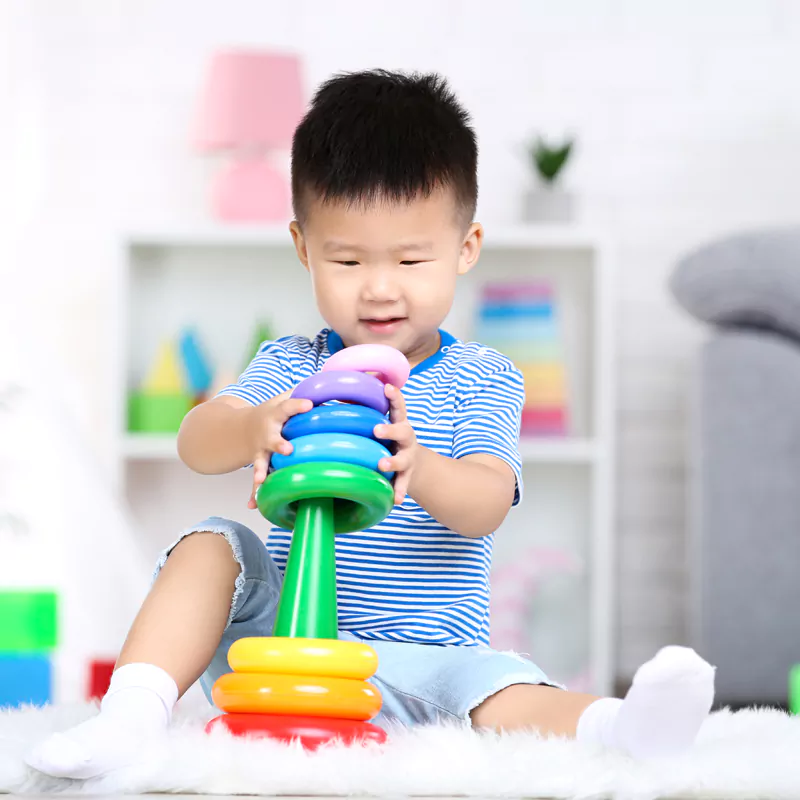
As a parent, it is important to focus on nurturing your child’s cognitive development as soon as she is born, because doing so lays the foundation for your child’s success later in life. Research shows that children who are able to distinguish sounds at an early age are better at acquiring the skills for learning to read by the time they are three and four years of age.
The reason why participating in cognitive development activities in early childhood is so critical is that it helps lay a solid foundation for learning. The brain is at its most receptive phase during the first five years of a child’s life, which leads to early experiences having a bigger impact on the development of neurological connections and improving brain functioning.
Improving your child’s cognitive development depends on actively engaging in quality interactions every day. She learns more if parents and adults make a purposeful effort to help her. So speak with your baby as much and as often as you can. Do this by pointing at and naming commonly used objects, as well as singing and reading to your baby. The more you talk, the more she will learn new words and understand what every word means.
Most of the cognitive skills are learned. This means cognitive skills can be improved, strengthened, and enhanced through practice and the right training, regardless of a child’s age. Cognitive development in children involves the building of learning skills, such as attention, memory and thinking.
These crucial skills enable children to process sensory information and eventually lead to learning to evaluate, analyze, remember, make comparisons and understand cause and effect. Strong cognitive skills are critically important to success in life!
Work on increasing attention spans
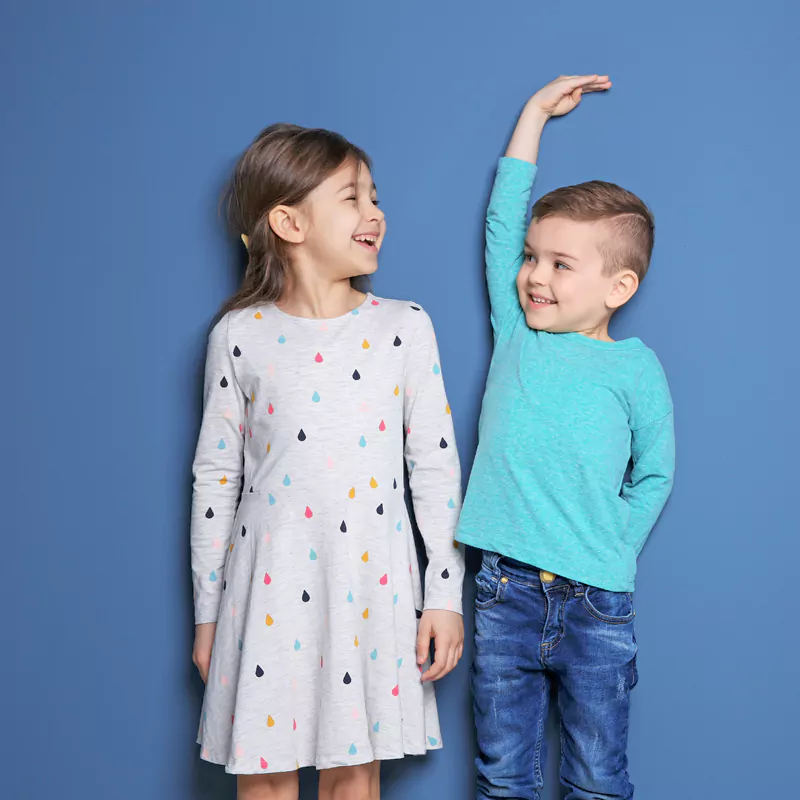
When your child learns to pay attention, it enables her to concentrate on one task or conversation for an extended period of time. Learning to pay attention is an important cognitive skill that your child will use effortlessly when it comes to all her future learning.
Children below five years of age are likely to have shorter attention spans. By the time a child reaches eight years of age, she should have an increased ability to focus on one thing for long periods and needs to be more adept at ignoring distractions to complete tasks.
Parents can help a child develop her ability to focus by pointing out things that seem important or interesting and then asking the child to comment on her observations. For instance, when visiting the zoo, ask pointed questions such as, ”which animal is your favourite?” or ”Why did you like that specific animal?” Questions like these help the child pay closer attention to what she is exposed to and also challenge her ability to choose specific words to describe her thoughts.
Helping build a strong memory

Memory is an important cognitive skill that equips a child to retain what she has learned and experienced and therefore helps build a future base of knowledge. Children who are less than five years old find it difficult to retain in their memory what they may have learned. But, as a child grows up and progresses into the school years, her long-term memory increases and allows the child to progressively build on the previous knowledge.
A useful technique for facilitating memory in young children is by teaching content with rhymes or catchy sayings or putting content to music. For example, a common way to teach children the months of the year is through a rhyme:
‘Thirty days hath September,
April, June, and November.
All the rest have thirty-one,
Excepting February alone,
And that has twenty-eight days clear,
And twenty-nine in each leap year.’
Teaching to think clearly & differently
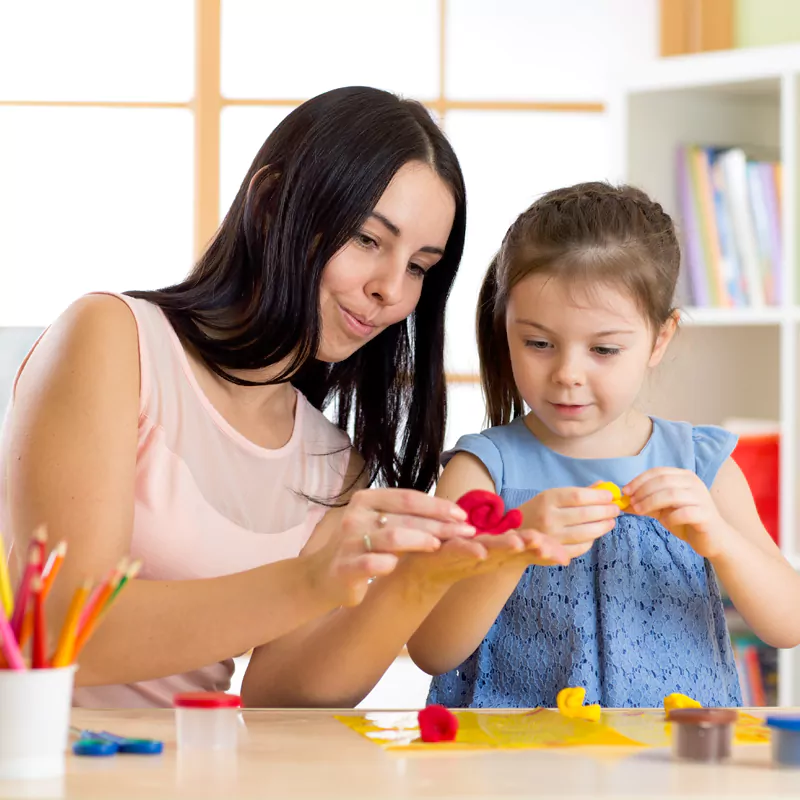
Thinking clearly enables a child to find the right reasons to sort tasks and find the right solutions easily and quickly. This cognitive skill helps a child to know whether she’s accomplishing what she set out to do or whether she needs to ask for help.
For example, when a child reads a story, thinking skills will allow her to determine for herself whether she understands what she’s reading or repeat it by going over what she is reading all over again. Look and find additional clues, observe more closely the pictures that are made available, or ask for help to grasp the intended meaning of the passage she is reading.
Studies have shown that young children who were not provided with enough mental stimulation were prone to negative behaviour issues, possessed lower self-esteem, and experienced higher levels of insecurities that could last well beyond childhood.
Over-reliance on computers and handheld devices is the main cause of children’s failure to acquire language and social skills in the way that they normally would. Many parents assume that playing “educational” games or watching “educational” TV for hours every day helps to develop children’s cognitive skills.
Research has clearly shown that interaction with peers, parents, and other caregivers over the first five years is far more educational and vital for cognitive development.
Activities to help cognitive development in toddlers
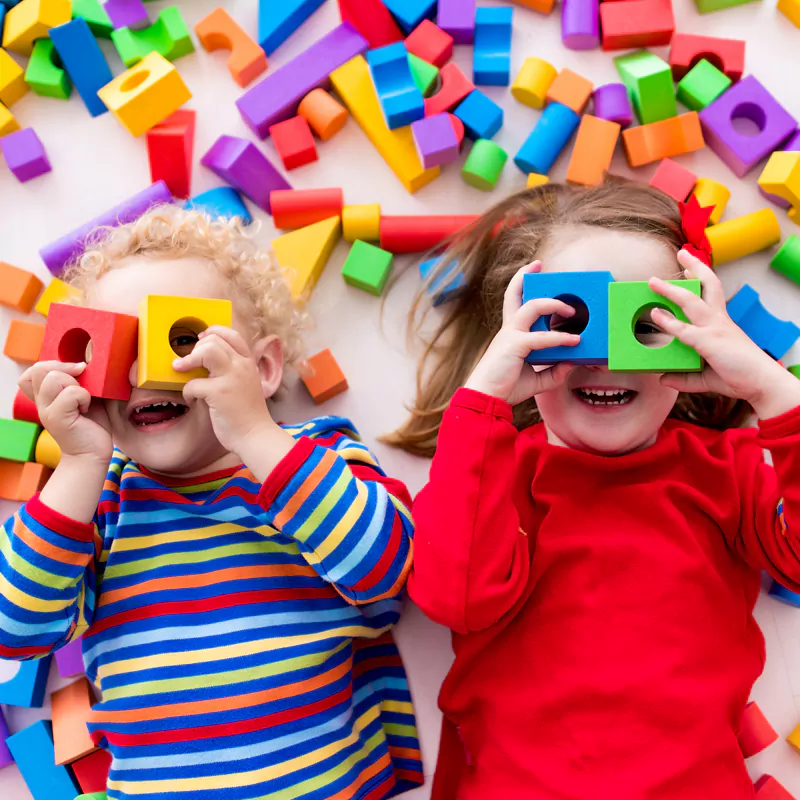
Throughout the history of mankind, babies were thought of as passive beings. They were often seen simply as miniature versions of adults. It wasn’t until psychologists and modern thinkers proposed that children actually think differently than adults do. This is what made parents view early childhood as a unique period of growth and development.
The remarkable cognitive skills of infants and very young children indicate that babies are in fact born to learn. Even newborn infants are actively thinking, and exploring the world around them, absorbing information and learning new things about themselves and the people and the world around them.
While the brain can be influenced at any age, it is most impressionable in the first five years of an infant’s life. You will be surprised at how easy it really is to help boost your baby’s natural cognitive skills. Incorporating simple yet effective cognitive development games into your daily routine can help your child in the areas of memory, focus, and concentration, and enhance the power of their senses.
Encourage your child to sing songs:
It will be great to get into the habit of playing your baby’s favourite songs and music in the house and when out on a drive in the car. You will be pleasantly surprised when your child begins to sing along on her own! This is an effective way to develop memory and word recognition.
Practise counting throughout the day:
Do this when at home and when you are out in the park with your child. For example, count the number of clothes in your child’s wardrobe or the number of slides in the playground. Pretty soon, you could have your baby begin counting everything with you.
Learning to recognize alphabets:
Reading alphabet books and playing with alphabet puzzles will help your child recognise letters. Create your own alphabet puzzle by cutting out separate pieces of letters from the cardboard and colouring them in vibrant colours. Jumble them up and stick them up on different surfaces around your home.
Walk your child through the alphabet, encouraging her to look around the house and discover the next letter. Help your child tape each alphabet on the wall in the correct order. Then walk her through the letters, calling out each alphabet aloud together. Make it fun by turning this activity into a game.
Identify shapes & colours:
When playing in the living room, you can remark, “That is a round, green ball,” or when approaching a stop sign say “That sign is an octagon.” Then describe what an octagon is in simple terms, an octagon has eight sides. ” You follow this up by asking your child to explain each shape to you.
Picking up toys exercise:
After every play routine, ask your child “Which toy should we pick up first when we clean up the living room?” Or explain “why should your child come down the stairway slowly.” These are simple but effective ways to help your child learn to think for herself. You may help your child learn how to solve problems and better understand the surroundings by asking her questions.
Improve decision making:
Ask your child when she is about to dress up, “Would you prefer to wear a pink or a blue skirt?” Or whenever the opportunity arises, ask, “Would she want to pack a cheese sandwich and a chocolate milkshake in her picnic box?” Asking questions go a long way in making your child become confident and make the right decisions.
Playing with common household objects:
Encourage your child to match different-sized spoons, set a table, or match table mats. Or play a fun game, have her look in the mirror and point out her nose, mouth, eyes, and other facial features. saying it aloud and describing what each one does!
Offer hands-on experiences:
Indulge in your child’s interests, and take her out to a local museum, art gallery, or vegetable market. While you’re exploring, ask them questions and listen to their replies. These interactions will not only increase bonding opportunities but will expose you to valuable learning experiences.
About My Gym
My Gym involves children in dynamic games, physical activity and movement that help in building neural networks in the brain. Making it easier for children to acquire intellectual skills, navigate complex social situations, and nurture emotional development.
To find out more about how My Gym supports “whole-child development” through cognitive development games, please visit any of our centres. Choose a day when you will be relatively free and come over with your child in tow. Your child could be an infant (as young as 6 months), a toddler, or a preschooler, age is not a bar for enrolling.
My Gym has specially designed whole-child development programs that lay a firm foundation for personal, academic, and future growth by involving your child in age-appropriate structured and unstructured physical activities and developing thinking and problem-solving skills.
Please note: My Gym classrooms are thoroughly sanitized every day — the tables, the chairs, the children’s activity stations and everything else the child might touch is made safe and clean. Please wear a mask, wash your hands frequently, and practice social distancing.
Frequently Asked Questions
What are the 4 stages of cognitive development?
The four primary stages of cognitive development in early childhood are elaborated below:
1. The sensorimotor stage that commences at birth and extends until the age of 2 establishes basic reflexes, senses, and motor responses.
2. The preoperational stage between 2 and 7 years promotes language development.
3. The concrete operational stage between 7 and 11 years that stimulates critical thinking skills.
4. The formal operational stage beyond 12 years of age involves logical reasoning and problem-solving.
Engaging children in a set of cognitive development activities during these stages of cognitive development builds a solid foundation for their holistic development and helps them acquire learning skills with greater ease.
What is the cognitive development of infants and toddlers?
Cognitive development activities for infants and toddlers refer to a set of exercises that boost their brain power, concentration, and attention span.
The key parameters that indicate the progression of cognitive development in toddlers are:
– Progressive linguistic development
– Foundational sensory development
– Association of rhythm and action
– Understanding and following simple instructions and directions
– Enjoy imaginative thinking
What cognitive skills should a 2 year old have?
On an average, a 2-year-old infant possesses the following cognitive skills:
– The ability to express emotions and feelings
– Receptive to linguistic development
– Development of sensory abilities
– The ability to mimic actions and follow simple instructions.
– Recognizing colours, shapes, faces, and sounds
Engaging children in preschool activities enhances these basic toddler cognitive development skills that form a solid foundation for their academic development.
What are some cognitive activities for toddlers?
Children’s enrichment activities that improve cognitive academic skills include:
– Singing songs stimulates sensory skills.
– In their daily routine, they can practise numerical counting of objects, which improves their learning skills.
– Reading and playing with alphabet puzzles strengthens their memory capacity.
– Identifying shapes and colours promotes cognitive skills.
– Playing with toys helps children practise role-playing and problem-solving skills.
– Encourage children to make choices based on the options provided for routine rituals such as selecting the colour of dress they want to wear or the fruits they want to eat.
– Solving puzzles and describing their favourite game also enhances their literary skills.
How do I teach my toddler cognitive skills?
Here are a few simple ways to foster cognitive development in toddlers:
– Initiating conversations with infants from the start.
– Pointing to shapes and colours to introduce toddlers to everyday objects.
– Asking them to describe their appearance or a favourite toy.
– Singing songs, reciting rhymes, and reading out stories.
– Asking them to read pictorial books or observe pictures and express their thoughts on what they see.
– Playing enriching games such as building blocks and jigsaw puzzles.
These simple exercises assist parents in stimulating their child’s cognitive development by engaging them in activities that improve their attention span, memory, logical reasoning, spatial awareness, problem-solving skills, and critical thinking skills.

